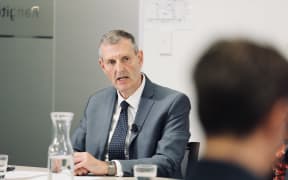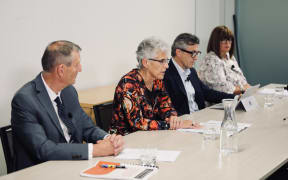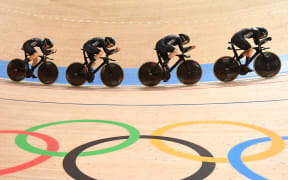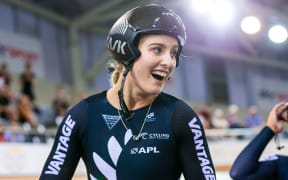Cycling New Zealand wants traumatised athletes to come forward after an investigation found ongoing issues within the high performance programme.
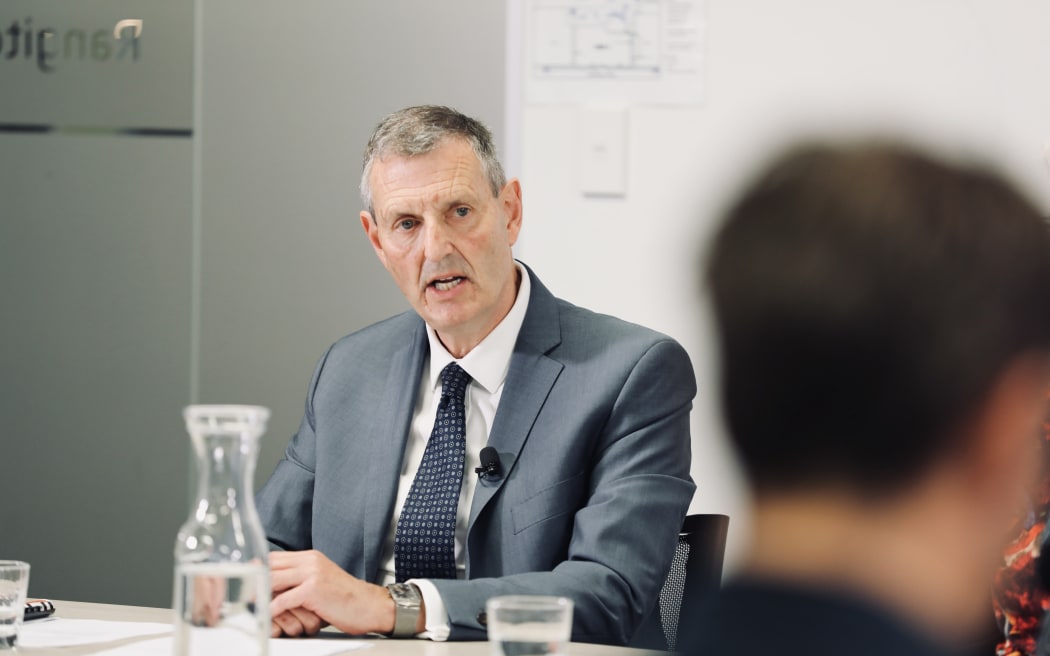
Photo:
The report was commissioned by the Cycling New Zealand and High Performance Sport New Zealand after the suspected suicide of Olympic cyclist Olivia Podmore last year.
Cycling NZ Chair Phil Holden says it was a difficult read.
"The very first finding in this document, talks to the unresolved trauma from 2016 to 2018 [suffered by cyclists]. That shocked us. Clearly Olivia was part of that group."
The investigation found Cycling NZ failed to act on recommendations from a review four years ago that warned the programme had a culture of bullying and poor behaviour.
It highlighted favouritism, a "fragmented" culture at the programme's base in Cambridge, a lack of transparency, and issues relating to medical care and support for women's health.
It also mentioned a high level of distrust between CNZ and High Performance Sport NZ (HPSNZ), and said many of those interviewed believed the high performance model as a whole did not give "sufficient priority" to athlete wellbeing.
Speaking to Morning Report, Cycling NZ Chair Phil Holden agreed part of the challenge would be getting athletes to come forward to an organisation they may not trust.
"Clearly we do have issues around trust and confidence within the organisation and externally with our key people and our athletes. I just hope that they can see there's a genuineness on our part for that to happen, we just have to give it the benefit of time I guess."
Former New Zealand Olympic Committee chief executive Kereyn Smith has been appointed transformation director for an initial 12-month period.
Holden couldn't give a timeframe for how long it would take to set up a system for athletes to safely come forward.
He said once Smith was in place the first step would be defining a mechanism for athletes to safely and comfortably approach them.
"The inquiry report has just been released and we're moving forward."
Asked whether the organisation had identified people who perpetuated a culture of bullying and poor behaviour, Holden said the high performance area of Cycling NZ has been completely reimagined since last year.
"I'm confident that those personalities are no longer there and we have a completely different group of individuals and people."
Of about 15 people in the high performance area, only a couple are left from the last Olympic cycle, he said.
"Part of it is a natural rotation from one Olympic cycle to the other and part of it is we've reimagined what we actually need in that area."
World BMX champion Jessie Smith has felt the impact of the poor culture and systems at Cycling NZ and said athletes didn't trust the organisation.
"The trust is almost minimal," Smith told Morning Report.
"It'll be interesting to see what they do to actually restore that but the way that the majority of our athletes are feeling now ... they're really really struggling and really finding it hard to speak up because that trust just unfortunately isn't there."
Athletes needed to feel safe and be sure their concerns would be listened to and bought up with the board, she said.
"I'm not sure that at the moment Cycling NZ is probably the best place for them to go to...
"All of our athletes know that if you were to speak up and speak out that there is a possibility that a little 'x' goes beside your name , whether that happens in two weeks, four weeks or months down the track when selection does occur. A lot of out athletes still have a lot of fear around that and are not ready to speak up and voice their concerns."
Smith thought it was "quite funny" to hear Holden describe the report as a shock because there had been issues since before 2013.
There were still a few people some athletes believed shouldn't be working for Cycling NZ, Smith said.
A group of athletes were working together to speak up and make sure all voices are heard, she said.
Where to get help:
Need to Talk? Free call or text 1737 any time to speak to a trained counsellor, for any reason.
Lifeline: 0800 543 354 or text HELP to 4357
Suicide Crisis Helpline: 0508 828 865 / 0508 TAUTOKO (24/7). This is a service for people who may be thinking about suicide, or those who are concerned about family or friends.
Depression Helpline: 0800 111 757 (24/7) or text 4202
Samaritans: 0800 726 666 (24/7)
Youthline: 0800 376 633 (24/7) or free text 234 (8am-12am), or email talk@youthline.co.nz
What's Up: online chat (3pm-10pm) or 0800 WHATSUP / 0800 9428 787 helpline (12pm-10pm weekdays, 3pm-11pm weekends)
Asian Family Services: 0800 862 342 Monday to Friday 9am to 8pm or text 832 Monday to Friday 9am - 5pm. Languages spoken: Mandarin, Cantonese, Korean, Vietnamese, Thai, Japanese, Hindi, Gujarati, Marathi and English.
Rural Support Trust Helpline: 0800 787 254
Healthline: 0800 611 116
Rainbow Youth: (09) 376 4155
OUTLine: 0800 688 5463 (6pm-9pm)
If it is an emergency and you feel like you or someone else is at risk, call 111.
